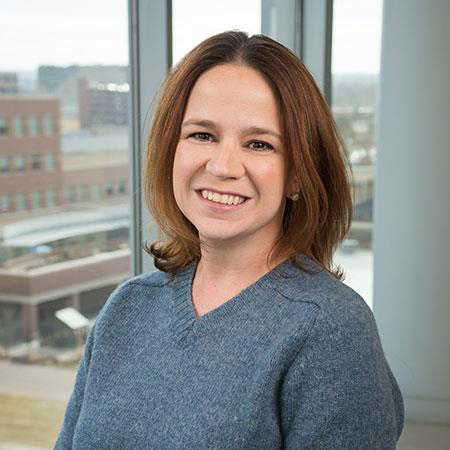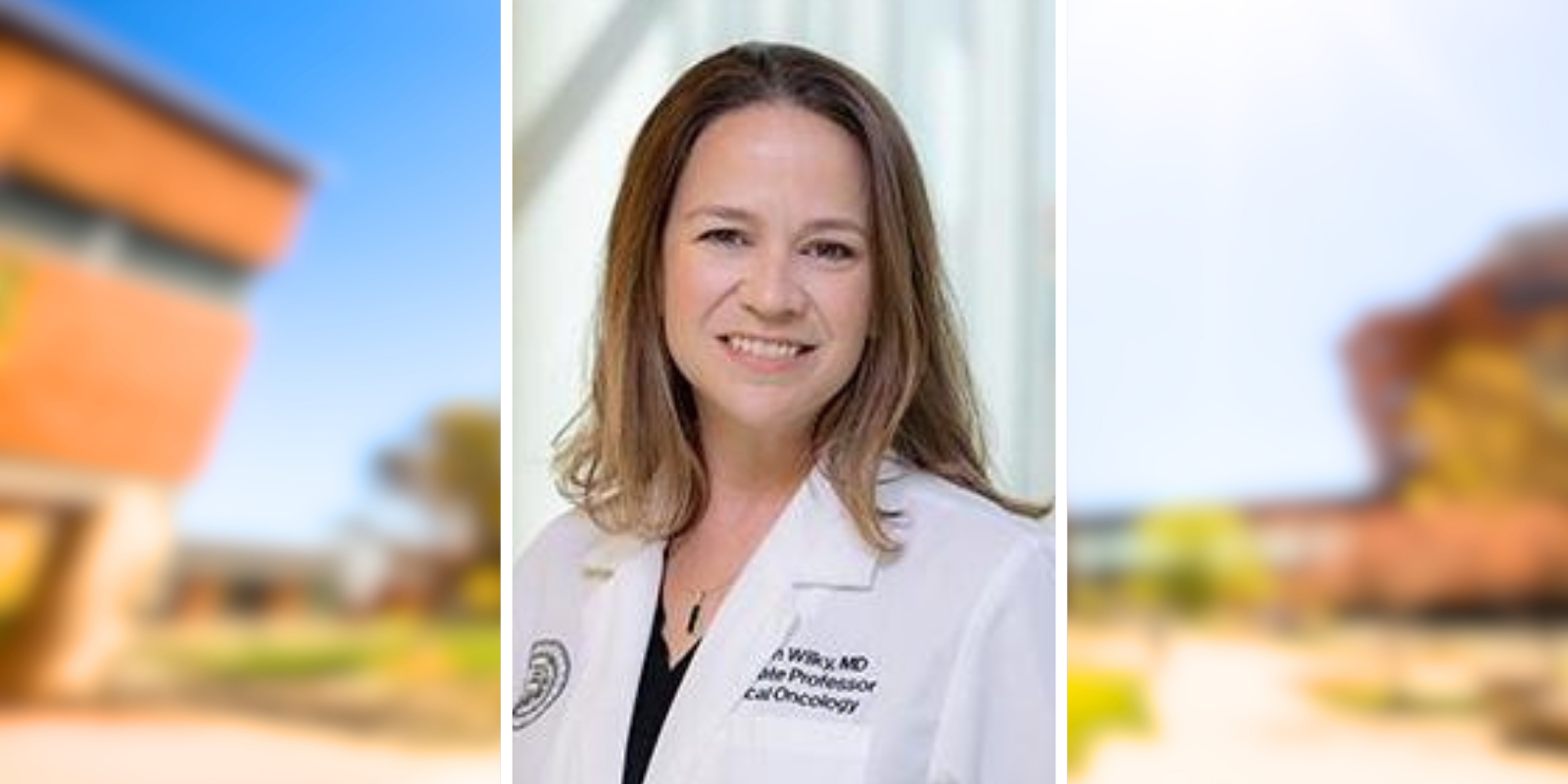After five years as an assistant professor at the University of Miami treating sarcoma patients and running sarcoma clinical trials, Breelyn Wilky, MD, recently joined University of Colorado Cancer Center as Deputy Associate Director for Clinical Research. Here we speak with Wilky about what drew her to Colorado and what’s next for the treatment of sarcoma.
Sarcomas represent only about 1 percent of all cancers. What made you want to study this rare disease?
Wilky: When I was just starting my fellowship at Johns Hopkins, I had several young patients with sarcoma. I remember searching the NCCN guidelines, PubMed, and Google trying to find options for these patients and was incredibly disappointed with the results. The challenging part of sarcoma is that if surgery can’t be done, treatments for the patients and survival are usually very limited. I felt that any small contribution I might make for sarcoma patients could have a huge impact on them and the way the disease is treated.
What convinced you that University of Colorado Cancer Center would be the best place to work on sarcoma?
Wilky: While in Miami, I conducted my first investigator-initiated clinical trial with immunotherapy for sarcomas, and really became passionate about trying to figure out how to make immunotherapy work for more patients. The CU Cancer Center appealed to me because it has an outstanding sarcoma program with a large catchment area and also a huge push for immunology research, especially with the recruitment of Terry Fry, MD, and Eduardo Davila, MD. These two faculty have provided incredible mentorship and support as I’ve gotten up and running here. I couldn’t imagine being anywhere else!
It seems like an exciting time for many cancers, with new targeted treatments and immunotherapies offering options for patients who might have had a poor prognosis even a couple years ago. Have these kinds of new treatments reached sarcoma, as well?
Wilky: Unfortunately, change has remained slow since I was in fellowship. On the one hand, genetic testing and genomics have been essential in helping us focus on targeted therapies for certain types of sarcoma. However most adult-type sarcomas are still being treated with the drug doxorubicin, which has been the same since the 1970s.
Do you see this changing – are there new treatments on the horizon?
Wilky: The role of immunotherapy in sarcomas really is the next frontier and we have really just begun to explore it. Right now, these treatments are helping only a small population of patients but when it does, it is the real deal. I have seen checkpoint inhibitor immunotherapy literally “melt” the disease away in certain cases. It’s really incredible. We are focusing on trying to understand why checkpoint inhibitors are so successful in these patients in hopes of being able to expand them to other patients. In fact, I’m excited to be leading several cutting-edge immunotherapy clinical trials for sarcomas here. We’re about to open an investigator- initiated clinical trial combining doxorubicin, the standard of care, with two immune checkpoint inhibitors for soft tissue sarcomas. Additionally, we are a site for several industry- sponsored clinical trials. Finally, I’m excited to be partnering with our laboratory researchers to help bring laboratory science to first-in- human clinical trials. So, yes, I’m hopeful that new treatments are on the way!
Congratulations on being named Deputy Associate Director for Clinical Research! What are you most excited about this role? What does the role entail?
Wilky: I am super excited to take on this role, which will allow me to be a part of CU Cancer Center’s efforts to expand our clinical research initiatives. My role is focused on leading the Investigator Initiated Trial (IIT) committee and team. This incredible infrastructure is designed to expedite ideas that come from our own investigators, not from outside pharmaceutical companies. These can be first-in-human trials of technology developed in our laboratories, or new combinations of existing drugs that have not been explored before. An investigator-initiated trial is really the holy grail of bench to bedside research, and I couldn’t be happier to lead this.




